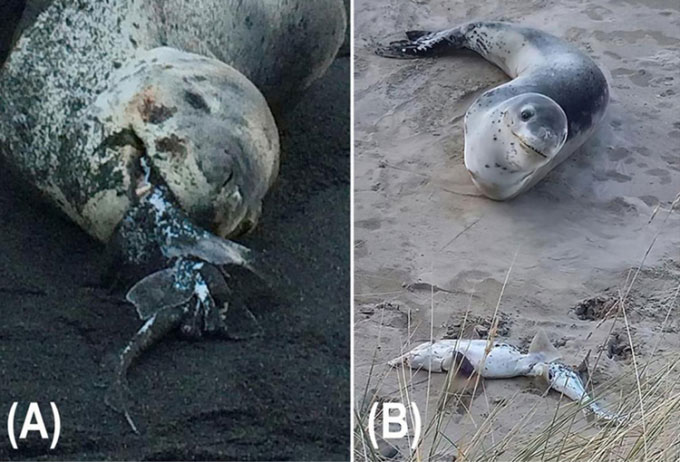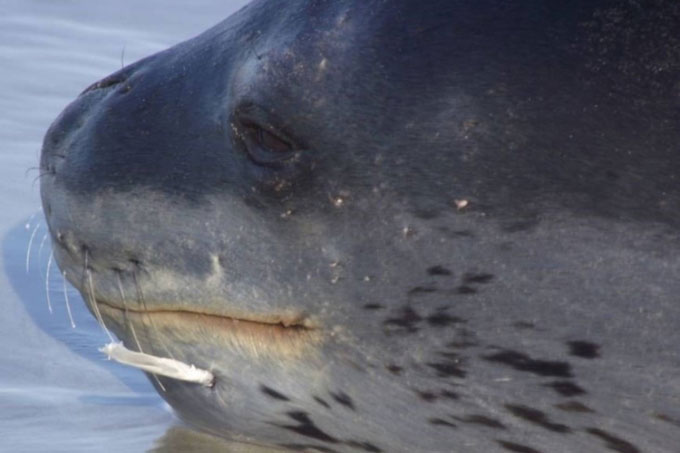Based on the wounds found on the body of the leopard seal, scientists have determined that they hunt sharks, another apex predator.
Scientists have discovered for the first time that New Zealand leopard seals prey on sharks, making them one of the few marine predators with this behavior. The research was conducted by expert Krista Van der Linde at Leopardseals.org along with colleagues, as reported by Guardian on December 17.

Leopard seal preying on ghost shark in New Zealand. (Photo: Sue Parsons/Anita Spencer)
The research team found remnants of shark in the leopard seal’s feces and signs of struggles with sharks on the seal’s body, indicating that this marine mammal hunts sharks rather than just scavenging dead ones.
“Ghost sharks have large spines for defense against predators. The leopard seals have many wounds on their bodies, sometimes with large spines embedded in their faces. One leopard seal even had at least 14 such wounds,” Linde stated.
Van der Linde is unsure why leopard seals target sharks, especially since hunting this prey is highly risky. “There may be something nutritionally that makes sharks appealing. It could be a delicacy for the seals,” she speculated.
Experts have long known that leopard seals are apex predators, feeding on penguins and other seal species. However, this is the first time they have found evidence of them hunting sharks.

Leopard seal with shark spine embedded in its face. (Photo: Kirsty Moffatt)
Leopard seals that reach the shores of New Zealand originate from Antarctica. Their presence in New Zealand waters is becoming more common. Researchers are trying to determine whether this is a true increase in population or if more frequent sightings create the illusion of a rising number.
The new study on the diet of leopard seals also raises questions for Van der Linde about whether they are coming to New Zealand for more diverse food sources and whether climate change is affecting food availability in more southern regions.
Researchers are also working to determine if leopard seals have always eaten sharks or if this behavior is new. “So far, we see leopard seals as opportunistic predators. They come to New Zealand and feast on anything they can catch,” Van der Linde noted.
She also mentioned that it is very rare to see apex predators eating other apex predators, and this could impact the food chain. “The very fact that an apex predator is preying on another apex predator is quite concerning. If leopard seals are indeed increasing in number and affecting shark populations, we really do not know what impact this will have,” she shared.


















































